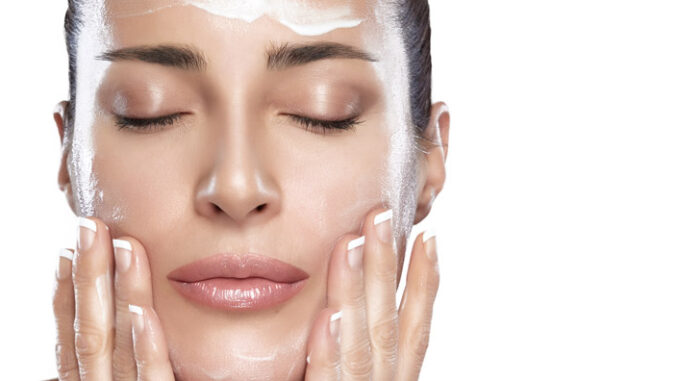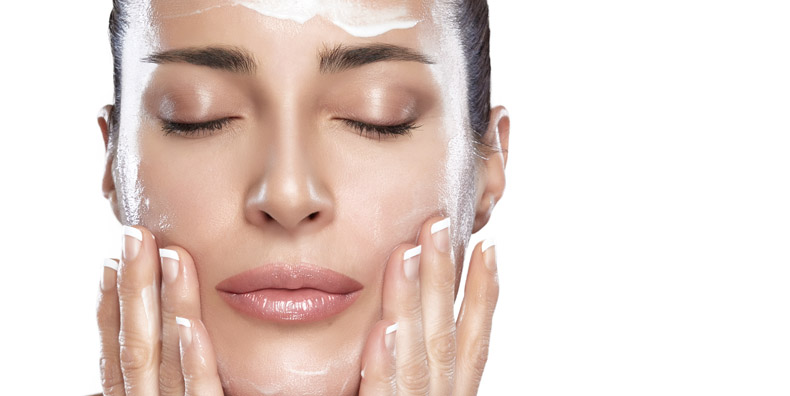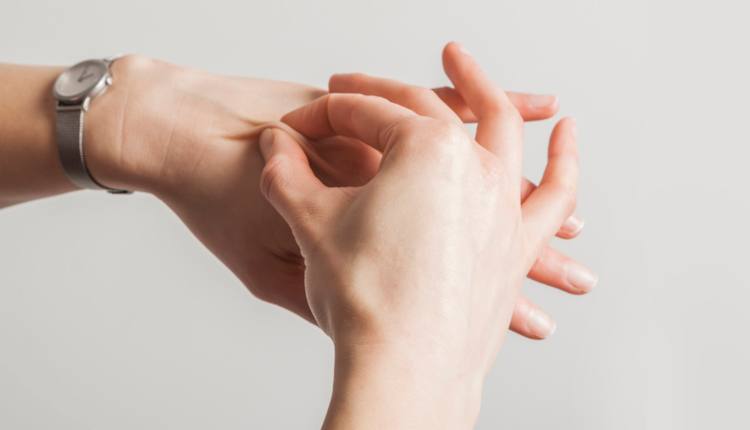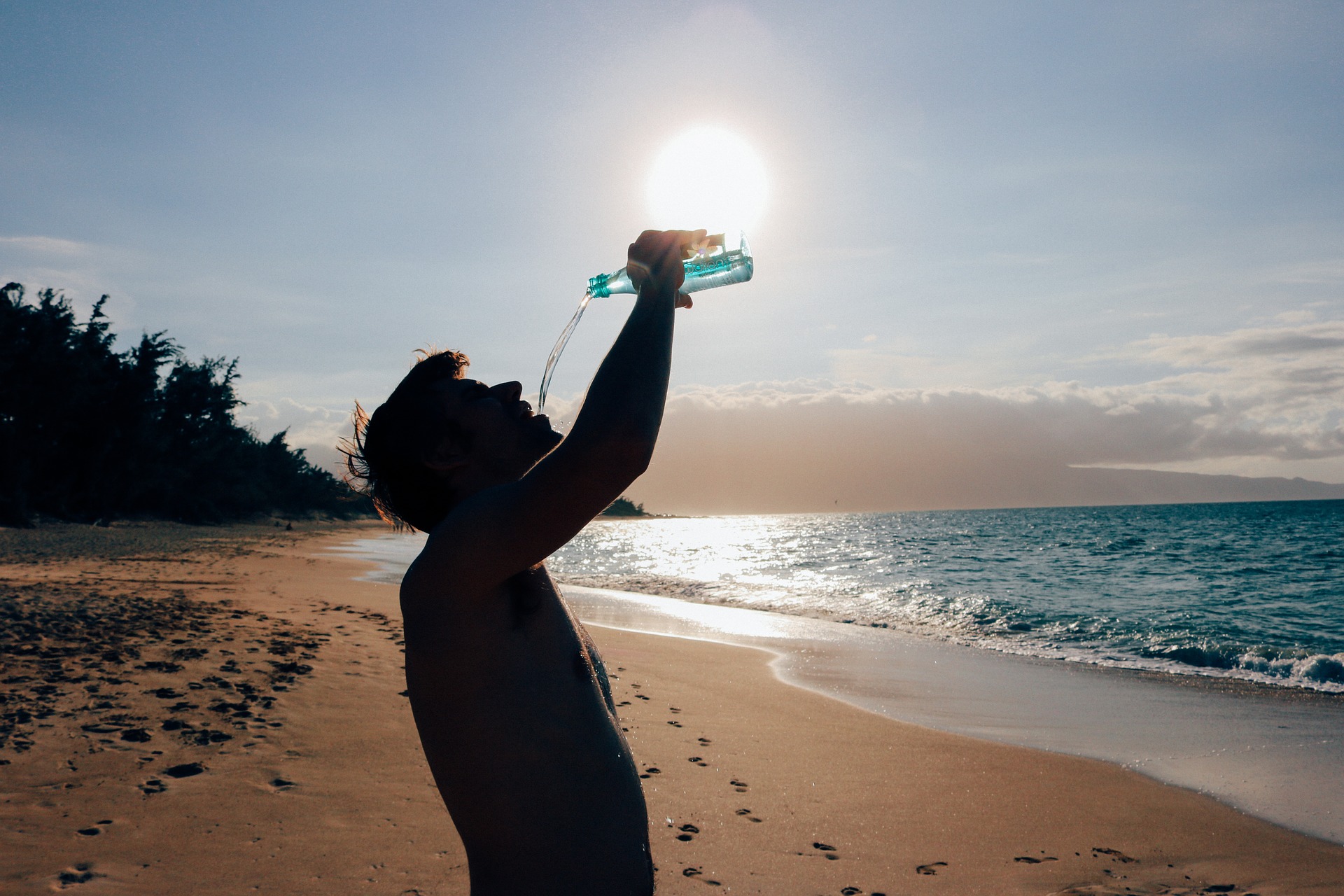

Dehydration is when the body does not have as much H2O (water) content as it needs.
Biologically, the human body tends to release water through sweat, urination, defecation, saliva, and tears. But when the body loses more water than it can intake, it results in a condition known as dehydration.
Its like this: let us consider a car tire, air slowly escapes from the tire but if we don’t fill the tire with air at regular intervals we will definitely end up with a flat tire. Similarly as water leaves the body, it needs to be taken–in at regular intervals. Hence we are advised to drink plenty of water or fluids and eat foods with high water content like a watermelon or a cucumber.
The human body cannot survive without water. About 75% of the human body consists of water, hence makes water a extremely vital component for the human survival. Water regulates body temperature through sweat. But inability to replenish the water lost through sweat will stop sweat secretion and cause body temperature to rise.
Water helps to promotes weight loss and boosts oxygen circulation.This is why it is must for us to take adequate amount of water every day, else it can lead to dehydration.So How to Know if You Are Dehydrated? & symptoms of Dehydration.
Table of Contents
What are the Symptoms of Dehydration?
Dehydration is diagnosed based on its stages:
In case of Mild Dehydration, symptoms are:
- Thirst
- Strong yellow coloured urine
- Dry mouth
- Slightly decreased urine
- 1 to 3 per cent weight-loss
In case of Moderate Dehydration, symptoms are:
- Chapped lips
- Significantly decreased urination
- Amber coloured urine
- Thirst
- Headache
- Lethargy
- Dizziness
- Hard stool
- Dry skin
- 4 to 6 per cent weight-loss
In case of Severe Dehydration, symptoms are:
- Dry or shriveled skin
- Sunken eyes
- Unconsciousness
- Delirium
- Fever
- Increased heart rate
- Low blood pressure
- Lack of sweating
- Fainting
- Sleepiness
- Constipation
- Confusion
- Decrease in tear production
- Chapped lips
- Dark or tea coloured urine
- Little or no urine
- More than 6 per cent weight-loss
So exactly What causes dehydration?
The basic cause of dehydration is the inability to rejuvenate the body with enough water as it loses or uses up water for necessary biological processes. Conditions that may lead to dehydration are:
- Diarrhea: Diarrhea prevents the large intestine from absorbing too much water from food resulting in a lot of water being excreted along with feces. This inadvertently leads to dehydration.
- Barfing or Vomiting causes the body to lose a lot of water.
- Sweating: Sweating uses up a lot of the body’s water to decrease temperature. Inability to restore the body’s water supply can result in dehydration, especially in cases when water is difficult to obtain. Intense physical activity and hot climates are known to accelerate sweating.
- Burns: Burns damage the blood vessels, causing fluids to leak into the surrounding tissues.
- Gastroenteritis (stomach flu): It refers to inflammation of the digestive tract which causes vomiting and diarrhea.
- Excessive bleeding
- Diabetes: High blood sugar levels cause increased urination.
- Frequent urination caused by:
- Uncontrolled Diabetes
- Alcohol
- Medications such as diuretics, antihistamines, blood pressure medications and antipsychotics.
- Malabsorption: A condition characterized by the decreased ability to digest or obtain nutrients from food.
- Inflammatory Bowel Disease: They are a group of chronic disorders which are characterized by damaged and swollen tissues in the digestive tract. It causes watery or bloody diarrhea.
- Addison disease: A hormonal disorder caused by decreased production of the adrenal hormone aldosterone. It results in low water concentration in the body. It can lead to acute renal failure.
- Diabetes insipidus: It causes increased thirst and urine production. It results from the lack of production of an antidiuretic hormone called arginine vasopressin.
- Irritable Bowel Syndrome: It is an intestinal disorder that causes pain in the stomach, flatulence (belching), diarrhea and constipation.
- You may forget to drink water or fluids.
- You may not realize that you are thirsty.
- You may have a sore throat or mouth sores or stomach ache.
Who are at risk of getting dehydrated?
- People at higher altitudes
- Sports persons and athletes
- People with chronic illness such as diabetes, cystic fibrosis, alcoholism and adrenal gland disorders.
- Infants and children who can’t tell you that they are thirsty
- Lack of drinking water or fluids
- Old people who don’t realize that they are thirsty
- People who do physical work in a hot and humid climate
What are the effects of dehydration on infants?
Symptoms of dehydration on infants and small children are:
- A sunken fontanel (spot on top of the skull) in babies
- Dry mouth and tongue
- Irritability
- No tears when crying
- Sunken eyes and cheeks
- No wet diapers for three hours or more
What complications can arise if dehydration is left unchecked?
If dehydration is left unchecked or untreated, the following complications can occur:
- Low blood volume: Low blood volume causes low blood pressure and less oxygen reaching tissues. Such condition could be particularly life-threatening.
- Seizures
- Kidney problems such as kidney stones, urinary tract infection and even renal failure.
- Heat injury (ranging from mild cramps to heat strokes)
How to know if you’re dehydrated?
If you are actually dehydrated your body cries out by eliciting the following signs:
- Thirst: Isn’t it obvious?
- Change in colour of urine (to dark yellow or orange)
- Bad breath: When you are dehydrated, saliva production decreases. This causes bacteria to grow in your mouth, a side effect of which is stinky breath. Pheee-ew!
- Dry or sticky mouth
- Dry skin
- Muscle cramps: During dehydration sweat production decreases, especially when doing physical work in a hot climate. The inability to cool the body’s temperature results in muscle cramps.
- Fever
- Food cravings, particularly for sweets: When the body runs out of water it becomes unable to break down glycogen into glucose, hence resulting in cravings for all-things-sweet.
- Headache
- Reduced urination
- Diarrhea (watery stool) and then constipation (dry and hard stool or none at all)
- Skin loses elasticity: The skin turgor decreases.
- Tiredness or sleepiness
- Pain surrounding genitals and lower abdomen
- Heart palpitations (rapid heartbeat)
- Increased confusion
- Increased irritability
- Decreased blood pressure
- Dry eyes or hazy vision
How do you test for dehydration?
There are two tests to help confirm diagnosis and determine the degree of severity of dehydration:
- Blood tests: The levels of glucose, ketones, electrolytes (sodium, magnesium and potassium) and blood urea nitrogen , and blood osmolality are tested for.
- Urinanalysis: It helps to check for bladder infection, ketone content in urine, urine volume, etc.
There is one more simple test which require no time….
Dehydration treatment?
In case of mild and moderate dehydration, here are the best drink for dehydration
- Drink water; lots and lots of water.
- All other forms of beverages (ranging from fruit juices to carbonated drinks to tea or coffee to soup and even sports drinks) are either high in sugar or salt content; consuming large quantities of such beverages may worsen the effects of dehydration so consume such beverages in moderation.
- Do not touch alcoholic beverages: Alcoholic beverages will leave you drunk rather than revitalized.
- Sea water: Seawater will worsen dehydration by causing increased urine output thus draining the remaining water from your body.
- Contaminated water: Water contaminated with toxins and microbes will cause diarrhea and thus worsen dehydration.
What to drink when dehydrated ?
In case of severe dehydration, Intravenous fluid infusion is required to prevent further harm and quickly rejuvenate the body.
- Isotonic solution: It is used in case of isotonic dehydration (both sodium and water content are lost proportionally). It contains 0.9 per cent saline (sodium chloride solution).
- Hypertonic solution: It is used in case of hypertonic dehydration (increased loss of water content than sodium content). It contains 3 per cent saline.
- Hypotonic solution: It is used in case of hypotonic dehydration (increased loss of sodium content than water content). It contains 0.45 per cent saline.
Home-remedies that can help combat dehydration
- Yoghurt, Banana, Buttermilk, Green tea, Coconut water, Peppermint essential oil, Apple juice, Orange juice, Cranberry juice, Salt: They are a rich source of potassium, sodium and magnesium which can help the body fight back dehydration. But it is not advisable in case of hypotonic dehydration.
- Barley water, Soup (which is also a rich source of vitamins and minerals which can help combat dehydration); but it is not advisable in case of hypotonic dehydration.
- Lemon essential oil and Wild orange essential oil: Both are a rich source of antioxidants which enhances immunity and helps recover from dehydration.
- Oral saline: It is one of the safest methods for combating dehydration as it helps increase water and sodium content in the body. It is also one of the safest methods for combating dehydration in infants (above 6 months). It is the best electrolyte drink for dehydration.
- Epsom salt bath: It helps the skin absorb magnesium into the body and combat dehydration.
How to prevent dehydration
- Drink lots of water; a minimum of 2 litres per day.
- Eat lots of foods, fruits and veggies which have a high water content such as yogurt, watermelon and cucumber.
- Drink fluids.
- Avoid alcoholic beverages and smoking.
- Wear light weight and light colored clothes, especially during the summer.
Infants and small children do not realize that they are thirsty so they should be made to drink lots of water and fluids, and they should be fed lots of fruits and vegetables that have a high water content.
During exercise:
- Drink water before exercising.
- Drink half-a-cup of water every 10 to 15 minutes while exercising.
- Drink water after exercising.
- A substitute for water could be sports drinks.
Below are few doubts related to dehydration that everyone want to know.
Q: Can dehydration cause high blood pressure?
Yes, when the body runs out of water, the brain secretes a hormone called vasopressin which constricts the blood vessels and causes high blood pressure.
Q: Can dehydration cause headaches and dizziness?
Yes. Fluid loss causes the brain to shrink and pull away from the skull resulting in dehydration headache and dizziness.
Q: Can drinking too much water cause diarrhea?
Yes, drinking too much water in a short time causes hyponatremia, i.e, loss of sodium content (by means of increased urination and diarrhea), which can result in hypotonic dehydration.
Q: Does dehydration cause fever?
Yes. Dehydration inhibits the ability of the body to regulate its temperature. Dehydration also causes tiredness and confusion, due to reduced oxygen supply to the brain.
Q: Does dehydration cause diarrhea?
Yes. Dehydration stimulates diarrhea and diarrhea worsens existing conditions of dehydration.
Q: Can dehydration cause seizures?
Yes, severe dehydration, when left untreated, causes a complication known as low blood volume which reduces the amount of oxygen carried to the brain. This condition may stimulate seizures.
Q: Can dehydration cause chest pain?
Yes, severe dehydration causes heart palpitations.
Q: I drink a lot of water and still feel dehydrated…
If you feel constantly thirsty, there is a possibility that you could be diabetic. So it is best to test for diabetes. Otherwise the problem could be your diet; consuming large amounts of sodium rich food could also cause dehydration.
Q. How long does it take to recover from dehydration?
The recovery time for:
- Mild dehydration is several hours.
- Moderate dehydration is 1 to 2 days.
- Severe dehydration (by means of IV infusion) is 12 to 24 hours.
Q: How long does it take to die from dehydration?
It has been estimated that it takes from a week to 10 days (at the most) to die from dehydration.
So guys we have cover lot of information related dehydration like cause, symptoms and treatment of dehydration…Still we are not able to add any crucial information then please write us in comment.




